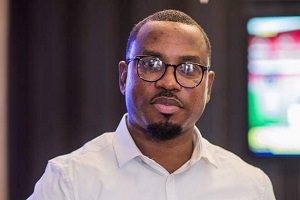I have twin girls. They are eight years old. They were born a minute apart of each other. They are beautiful, identical and unique in their own way. They are called Adeifeoluwa (the crown of God’s love) and Adeireoluwa (the crown of God’s goodness). While it is hard to tell them apart in appearance (my wife still asks: “Who are you?” every time she sees them), they are two distinct individuals with likes, styles and skills. For instance, Adeifeoluwa, the first of the two, has won awards in writing competitions, and had one of her poems published. Adeireoluwa, on the other hand, has won numerous sport medals for herself and her school.
Shortly after they were born, we took them to our local GP for registration. We filled out the forms with their details and gave it to the surgery. I later found out that a member of staff in the surgery had decided to update their record, by swapping their Yoruba first names for their English middle baptism names. Their reason was that the English names are “easier and better to pronounce”. After a trip back to the surgery, during which I had a word with the GP, we received an apology and my daughters’ names were put right again, with their Yoruba names as the first names.
This was not an isolated incident for me. There have been many instances when the English language had been prioritised at the expense of my native language of Yoruba. The Yoruba language is one of the over five hundred languages spoken in Nigeria, and a member of the Kwa language family of West Africa. Whether as a result of questionable government language policies, societal pressure, unhealthy negative attitudes, ignorance, or an interaction of all of these, English has continually enjoyed a more prestigious and privileged status than Yoruba, or any of the other indigenous languages in my multilingual Nigeria. I found out about this at a very tender age.
The second of five children in a low-income family, I was privileged, and saddened at the same time, to be the only child chosen to receive an education, as my parents could only afford to send one child to school. I was chosen because I spoke the best English of all the five children. To my monolingual Yoruba-speaking parents, this was enough proof that I was the most likely to succeed in life. The plan was that after my “success”, I would then take care of the needs of my siblings who have made the sacrifice for me to go to school.
A family tragedy would later derail the education plan, but not before I had already learnt about this language conflict going on between Yoruba and English. Yoruba speakers who do not speak English are often seen and treated as failures, and a predominantly monolingual Yoruba-speaking community is considered to be at the bottom of the social ladder. I was determined at that early age to master the English language, with one major aim in mind, viz.; to find out the properties exhibited by different features of the language and see how they interact to make it “more powerful” and “better” than my beloved Yoruba. The plan was then to see if these could be applied to Yoruba to attain the same status as English.
I am in my final year of a BA English Language and Linguistics course, and with the support of my Supervisor, have begun work on my Capstone project looking into an interesting aspect of Yoruba syntax. During the course of my study, I have learnt that, like my Adeifeoluwa and Adeireoluwa, Yoruba and English are both beautiful languages, identical in some ways (both have the same SVO word order e.g. “Ade ate rice”; “Ade je iresi”) and different in other (e.g. English verbs are inflected (suffixation) for past tense with the use of ‘-ed’ as in played, “They played together yesterday”. Yoruba, as an aspect-based language rather than a tense-based one, does not mark the past tense with suffix morphemes rather the past tense is prefixed with adverbs. “Won jo sere l’ana”).
A language embodies the unique customs and history of a people. The foundation of everything I know about the Yoruba language today, was laid by my parents while growing up in Bariga, a Yoruba-speaking suburb in Lagos State, Nigeria. For this reason, efforts should be made to encourage a language’s development, documentation and description. While there are over thirty million first language speakers of Yoruba around the world, and a written system that dates back to the nineteenth century, there is a general consensus that Yoruba, is a “resource-scarce” and an under-described language. Languages like English, on the other hand, are better-resourced/-described in the literature. When languages of the world are given the necessary support to grow, the language diversity that results plays an important role in our human heritage.
Finally, a quick update on my siblings. Two of my sisters are now teachers, teaching in private primary/secondary schools in Lagos. Another sister is a nurse, who is still training to advance her career in Nursing. My brother is a stage actor and a radio presenter hosting a Yoruba-educative programme on a privately-owned radio station. All without speaking “good English”.
